I read Susan Barker’s novel The Incarnations in early 2017. Even months later, I still reflected on the characters. I saw them roaming in smoggy Beijing and not seeing anything around them, I heard their tensioned dialogues and the unspoken truths behind them. Although even Hungarian readers liked the novel very much, there is a chance that it won’t be made available for Chinese readers due to its political content and ruthlessly honest narrative. Alongside that, I asked the author of The Incarnations how she gathered materials for her novel, how history and fantasy collude in it, and she told me a bit more of a shocking example of female power.
I read in your bio that you have a personal contact to East Asia through your mother’s side, and that your grandfather emigrated from China to Europe. Can you tell us a bit more about it?
My late grandfather is originally from the south of China (he was Hakka Chinese – a minority ethnicity in China), and he emigrated to Malaysia before World War II. My mother was born and raised in Kajang, Malaysia, and then emigrated to England when she was 19 to train as a nurse. She ended up settling down in the UK, and has now been here for over 45 years. I was drawn to write about China because I have an ancestral connection to the country, through my grandfather, and I wanted to follow the chain of emigration backwards to its origins.
I also read that you lived in Beijing for a while. Why did you decide to move to China? Was this decision already motivated by the research for The Incarnations, or did you get the idea of the novel only after you arrived to China and got some impressions there?
I moved to Beijing in the summer of 2007 specifically to research a novel set in China. Before I began writing The Incarnations I knew I wanted to write about the rapid social and economic change following Deng Xiaoping’s Reform and Opening, and the effects that this has had on the lives of ordinary citizens. I was also very fascinated with Chinese history – the chaos of the time of Mao Zedong, and also China under imperial rule, which varied from emperor to emperor, dynasty to dynasty.
When I first arrived in Beijing (in 2007) my research was very scattershot. I wandered about the city making notes, and read books about anything I was interested in; rural to urban migration, Qing dynasty emperors, Tang dynasty poetry and so on, waiting for inspiration to strike. Eventually all of my research interests began to coalesce into a book.
I ended up living in China for about 5 years in total – two and half years in Beijing, and two and a half years in Shenzhen (in Guangdong province, near Hong Kong). Living in China, and experiencing everyday life there, was a very important part of my research. As the novelist Yu Hua says in his collection of essays, China in Ten Words: ‘Daily life may seem trivial and routine, but in fact it contains a multitude of incidents, at once rich, expansive and touching. Politics, history, society and cultures, one’s memories and emotions, desires and secrets – all reverberate there.’
Where and how did you manage to research for the historical parts? Isn’t it hard to get access to historical sources in a country where historical accuracy and the preservation of resources happen to be sacrificed for the sake of a future-oriented Communist ideology?
The research for the historical sections of The Incarnations was all from English language texts. It is true that a great deal of Chinese history – The Cultural Revolution and the Tiananmen Square massacre in particular, has been whitewashed in China, but outside of China there is a vast supply of English language books (by both Chinese and Western academics, memoirists and fiction writers) that deal with subjects, such as the failings of Mao Zedong, that would be censored in China. I spent months in libraries at Harvard and University of Colorado (when I was living in the US), and SOAS and the British Library in London, and the National Library in Beijing (which has a surprising amount of books that are critical about Mao-era China) reading about the eras I wanted to write about. Had I been an exclusively Chinese language researcher, perhaps I would have encountered more difficulties.
There is a scene where wives and concubines try to assassinate the Jiajing Emperor. Are the women (their names, identity, fate, etc.) also authentic historical figures like the emperor himself? Was it your intention to “rewrite” some parts of national history from a special point of view?
Though some of the past incarnations are based on actual events, I do deviate from historical facts. As a fiction writer I don’t feel constrained in the same way an academic would be. I was able to take inspiration from history and then spin my own tales. The past incarnations are (roughly) one part historical research and two parts imagination. The stories were also influenced by Chinese folklore, and subsequently veer into surreal and fantastical terrain.
The ‘Sixteen Concubines’ story, about the attempted regicide of Emperor Jiajing, was based on actual events. Jiajing, the eleventh emperor of the Ming dynasty, was a sexual sadist, torturing (and sometimes murdering) his palace concubines. In 1542, sixteen of the concubines crept into his bedchamber and attempted to strangle him with a silken cord. However, the assassination plot was thwarted and the concubines executed by the Death by a Thousand Cuts. Though the assassination attempt actually happened, not much has been written about it, and I had to fictionalise a great deal, inventing all the characters, their interiorities, the relationships between them, and so forth.
I was drawn to this story, because I liked how these imperial concubines attempted to take their fate into their own hands.
I have the feeling that The Incarnations has a lot in common with The Master and Margarita. There is a fully atheistic Communist world order that is turned upside down by the sudden presence of the supernatural. Did you really “use” Bulgakov or anyone else as an inspiration, or is it a mere coincidence?
Ah, I have never read The Master and Margarita, though after reading your questions I feel I should! I am not sure that I wanted to introduce the fantasy element to the novel in order to subvert to atheist, science-orientated ‘logic’ of Communist ideology – most of the fantastical stuff is in the imperial-era historical stories. It was more because I love fiction with elements of fantasy and surrealism in it (such as Jorge Luis Borges, Angela Carter and David Mitchell) – both reading and writing fiction that transcends the realm of the ordinary is a joy to me!
Was your novel also published in Chinese? If yes, what reactions did it get from Chinese communities?
The Incarnations hasn’t been published in China, and due to the political content, I doubt it ever will be. However, several Chinese friends, including a couple of Chinese novelists, have read The Incarnations, say the characterization and depiction of modern China comes across as authentic (to my relief). Some Chinese friends have made comments like, ‘I didn’t know much about the Jiajing Emperor until reading your book – that part was very interesting,’ and so on. But other people, mainly at readings, have said, ‘Why didn’t you write about Qin Shi Huang Emperor? Or the Warring States period? These are much more important periods in Chinese history!’ So I think, regarding Chinese history, The Incarnations is enlightening to some Chinese readers, and woefully deficient to others.


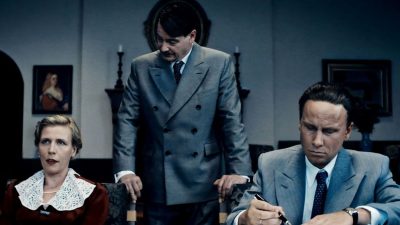



















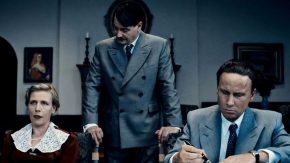
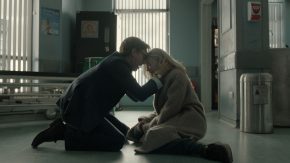

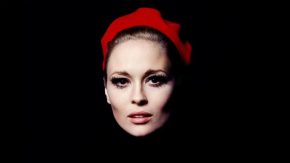
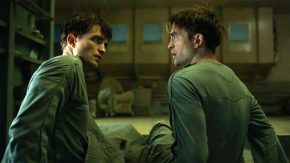
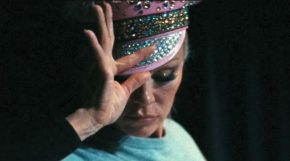
Comments